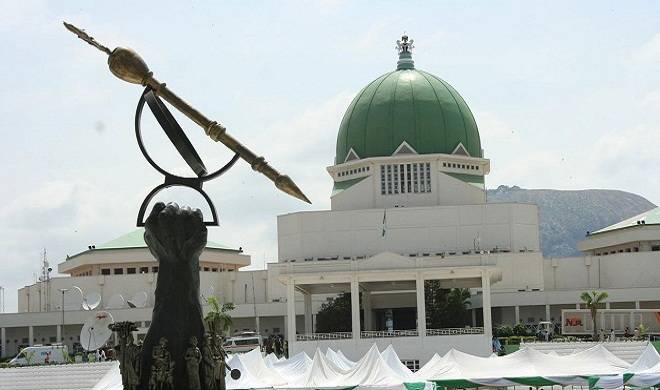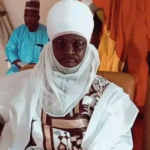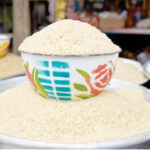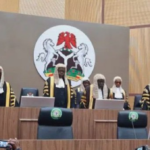
Show me a hero and I will write you a tragedy – F. Scott Fitzgerald
There is arguably no Nigerian that had contributed more in formulating the political trademark that President Muhammadu Buhari effectively used in sweeping the 2015 polls than Bamidele Ademola Olateru who on May 10th 2013 in the esteemed Daily Trust pages described him as a “damaged brand”. Hers was not political condemnation. It was an analytical look into her political hero’s brand equity.
The reaction was predictable. Many traduced her but the few that took her seriously made all the difference since she had pinpointed what had damaged his brand, those that had damaged it and the way forward. Having gone full circle the main issue ahead of the 2019 elections is the envisaged candidacy of President Muhammadu Buhari and the staunch opposition of his former boss and one time mentor former president Olusegun Obasanjo. Who as far as he is concerned Buhari has lost the brand equity necessary in seeking another term. It is against this background that whatever that is currently unfolding in Nigeria’s political space is not unconnected with Brigadier Sani Abacha’s 7 am declaration on 31st December 1983 that “the armed forces have in discharge of our national role as promoters and protectors of our national interest, decided to effect a change in the leadership of the government of the Federal Republic of Nigeria”.
The historian Max Siollun in ‘Soldiers of Fortune: Nigerian Politics from Buhari to Babangida (1983-1993)’ would establish the plot’s order of preference for candidates to lead the nation after Shagari’s overthrow as Obasanjo, Babangida and Buhari in that order. Babangida would confirm that in the Pointblank News edition of 25th January 2008. So why did Babangida “step aside” for Buhari after Obasanjo’s refusal? It is only when Nigerians can dispassionately answer that crucial question that the course to 2019 can be properly navigated.
In his memoirs entitled ‘Beckoned to Serve’ former president Shehu Shagari openly accused his immediate predecessor Olusegun Obasanjo for “coup baiting” ahead of the military overthrow of 31st December 1983. What the Turakin Sokoto alleges in his book is that “Obasanjo and other retired officers severely criticized his regime with the aim of inciting the military to overthrow him”. Which has now led to the million Naira question of can Buhari break the Obasanjo jinx of “coup baiting” having chiefly benefitted from such antics in the past? No Nigerian has arguably been such a constantly recurring irritant with ever increasing nuisance value like former president Obasanjo.
The ever unrelenting oracle of Ota has managed to over the decades remain a permanent fixture in virtually every leadership change in our nation by either ruse or active participation. With Buhari however Obasanjo is now inciting voters for the civilian equivalent of a coup albeit through democratic elections. Somehow the wily fox of Abeokuta’s hilltop conveniently positions himself either at the center or strategically at the sidelines of cataclysmic events starting with the bloody coup that overthrew the Balewa led administration on January 15th 1966.
If back then the conspiracy that culminated in Nigeria’s first military coup had been thoroughly investigated there was no way Obasanjo would have escaped suspicion and questioning but by a curious twist of events he managed to reinvent himself as a mediator in the process that led Major Chukwuma Kaduna Nzeogwu to surrender himself to the authority of General Aguiyi Ironsi. Even by the time the Northern officers were set to execute the equally bloody July 29th 1966 counter coup in retaliation, Obasanjo had timely insider knowledge to earn him a head start in escaping the mutiny that specifically targeted Southern officers as the ominous clouds were gathering in Kaduna. Obasanjo by subterfuge escaped to the calm and ambience of Maiduguri. In retrospect a monumental paradox by today’s security standards.
By the time the plot against General Yabuku Gowon was thickening Lt Col. Abdullahi Mohammed on behalf of the arrow heads approached Obasanjo to be part of a triumvirate with Murtala Mohammed and TY Danjuma to subsequently lead the nation. He rather ended as number two because Mohammed was not the type of person to suffer fools gladly. Obasanjo would also play a crucial role or the other with every single change of government or attempt to do us by well-timed lobbing of public relations grenades into the polity since then. He would even be convicted for a military coup attempt during the Abacha era. Even his handpicked successors Umar Yar’adua and Goodluck Jonathan were not spared from Obasanjo’s pendulum swings?
According to the public affairs analyst formerly known as Sanusi Lamido Sanusi – “Buhari will always be a victim for his love for Nigeria”. Many Nigerians totally disagree. They posit it is the other way round using Matthew Hassan Kukah’s ‘Witness to History’ as a backdrop where the blatant refusal of President Buhari to come to equity with clean hands was well chronicled for posterity. Obasanjo’s soldierly competence and moral grounds would similarly be questioned in glaring detail in General Godwin Alabi Isama’s memoirs entitled ‘The Tragedy of Victory’ in which he dedicated 2 chapters spanning 252 pages. That notwithstanding Buhari’s refusal to appear before the non-judicial panel the active help and connivance of Obasanjo was critical for the ruling APC to coast to victory against the backdrop of an uncommon national consensus. Back then Nigerians eagerly rallied around the “change” flagship which Buhari had skillfully marketed.
Interestingly before being elected Mr. President offered neither caveats nor preconditions for achieving that lofty ideal of “change”. He was vague and non-committal to the extent that in office he even denounced his presidential campaign manifesto after assuming office. The political falcons that ensured his 2015 victory are no longer hearing the falconer from Daura. Since then he has lost traction lost traction to become a pawn on his own chess board. As the national leader of the ruling APC by virtue of his being its most senior elected official Mr. President is akin to a garrison commander with scant control the parade ground of the nation’s democratic space. Obasanjo smelt blood and moved in for the kill. The seminal columnist Jideofor Alibe describes the Balogun of Owu as having a “Von Clausewitzean approach to politics” who is “an equal opportunities bully” and “one who respects the application of federal character in his choice of both victims and allies”.
The current political fallout between President Buhari and his erstwhile boss and mentor Obasanjo was therefore predictable. It was a question of when and not if. Did Buhari foresee it? I have my doubts because Mr. President is not a student of power. Rather he has always been a major beneficiary of other people’s political machinations with 1983 being no different from 2015 for him. Somehow Mr. President has always been the icing on the cake baked by other power brokers obviously much more adept than him.
So what has the foregoing got to do with current political happenings in the country? Nigeria is still in the firm grip of military adventurers who are members of the same clique of ambitious elders, alternating between being heroes and villains that have had a vice like grip on the country for five decades that is what. These individuals have always had a hard time distinguishing between national interest and selfish ambition. One thing however unites them: the indivisibility of Nigeria.
Yahaya-Joe wrote this piece from Wusasa, Zaria




